Kashmir and Bollywood: Hindu Nationalism, Islamophobia And Obfuscation of the Military Occupation
The occupied region of Kashmir and India’s Mumbai-based Hindi cinema, popularly known as Bollywood, share a long history of relationship.
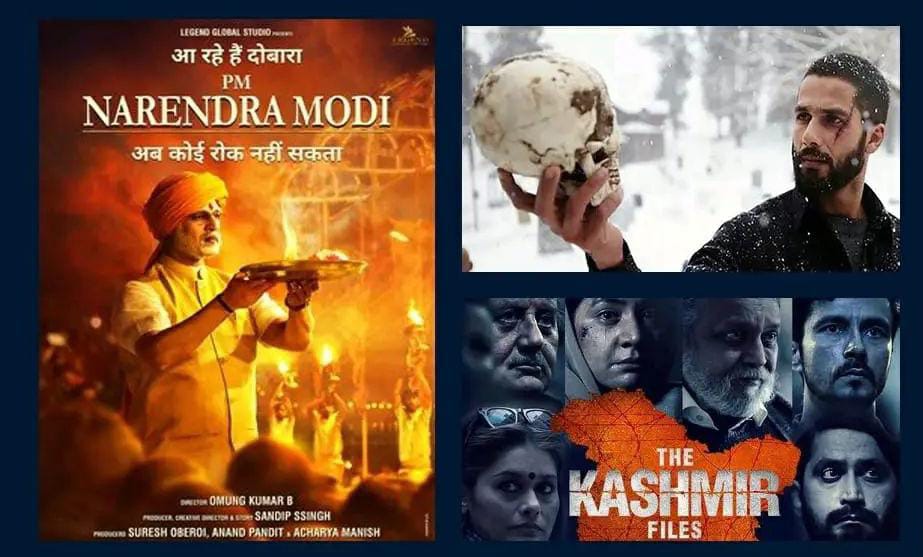 CategoriesReports
CategoriesReportsThe occupied region of Kashmir and India’s Mumbai-based Hindi cinema, popularly known as Bollywood, share a long history of relationship.
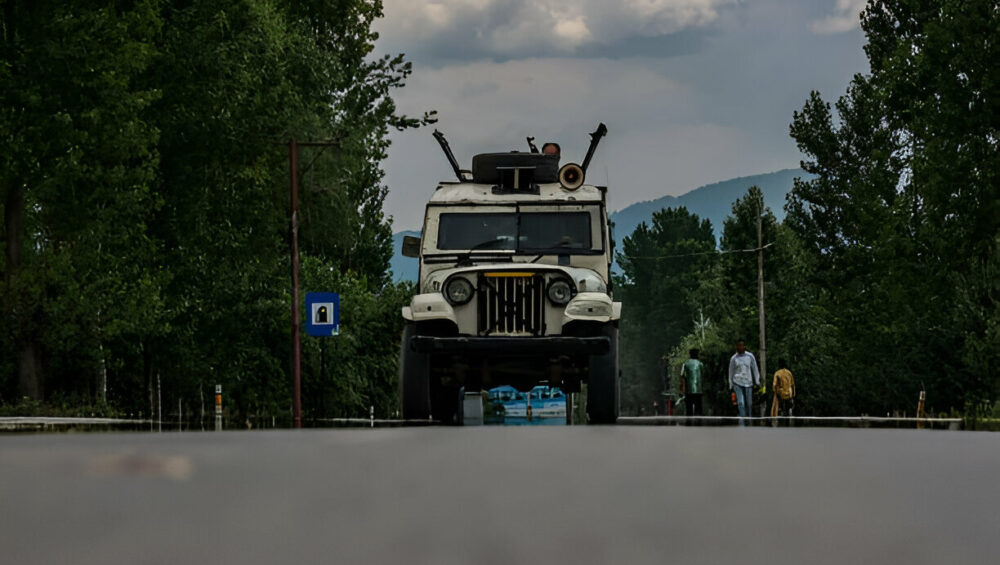 CategoriesReports
CategoriesReportsThe first six months of 2024 (January-June) saw a continued trend of state repression and counter-insurgency operations in the war-trampled region of Indian Occupied Jammu and Kashmir (IOJK).
 CategoriesPolicy Brief
CategoriesPolicy BriefUnited Nations Standard Minimum Rules for the Treatment of Prisoners: Prisoners shall be required to keep their persons clean, and to this end they shall be provided with water and with such toilet articles as are necessary for health and cleanliness. United Nations Rules for the Treatment of Women Prisoners and Non-custodial Measures for Women…
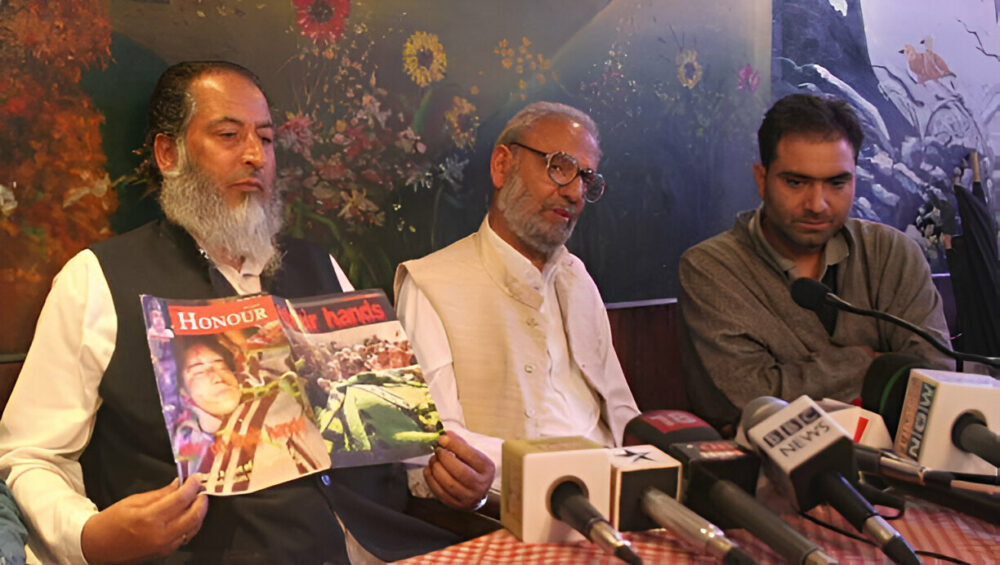 CategoriesBlog
CategoriesBlog15 years after the horrendous rape and murder, the Indian state continues to erase our memory,
 CategoriesReports
CategoriesReportsThe revocation of Article 370 on 5th August 2019 has brought about a paradigm shift in the socio-political landscape of Kashmir. Following the unilateral revocation of this article that granted ‘semi-autonomous’ status to the Indian Occupied Kashmir by perpetuating hermeneutical violence, India has initiated a multifaceted socio-psychological re-engineering of Kashmir’s religious and cultural landscape–––, effectuating…
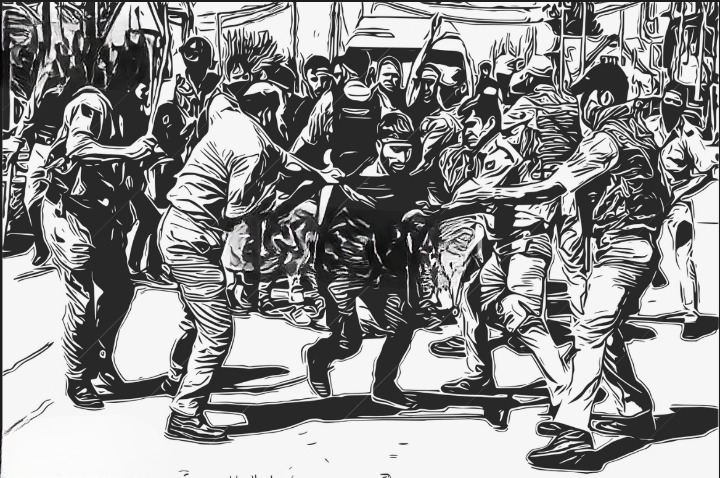 CategoriesReports
CategoriesReportsFor over three decades, the region of Indian Occupied Kashmir has been a crucible of Armed conflict and suffering, marked by violence, oppression, and persistent turmoil. The report Published by the Institute of Kashmir Studies (IKS) for the period of April to September 1997 serves as a stark reminder of the harsh realities faced by the Kashmiri populace during that era, highlighting the enduring and tragic narrative that continues to unfold.
 CategoriesReports
CategoriesReportsDark Days Deadly Nights is the collection of testimonies of the Kashmiri civilians who were brutally massacred by the Indian occupying forces.
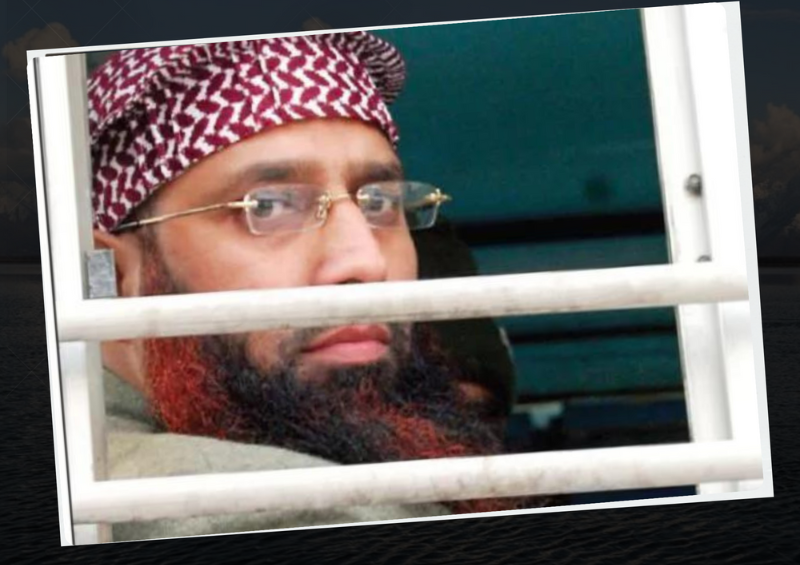 CategoriesLetters
CategoriesLettersLegal Forum for Kashmir-LFK is an International legal advocacy group working on the promotion of Human Rights, International Humanitarian Law, and UN guaranteed Right of self-determination for the people of Indian-occupied Jammu and Kashmir (IOJK).
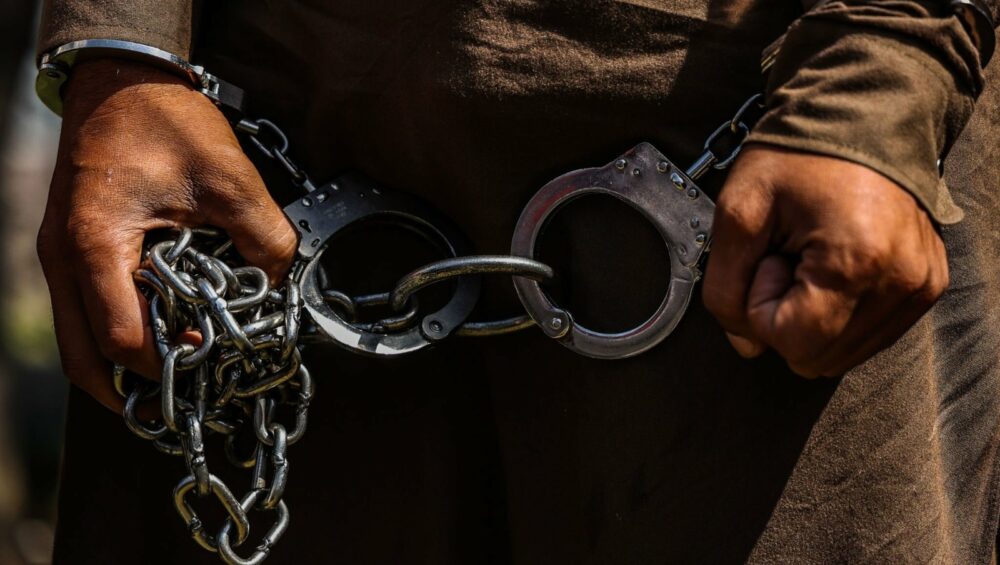 CategoriesReports
CategoriesReportsThe Legal Forum for Kashmir (LFK) released its annual report, titled “Human Rights Situation in Indian Occupied Jammu & Kashmir (IOJK): January to December 2023.”
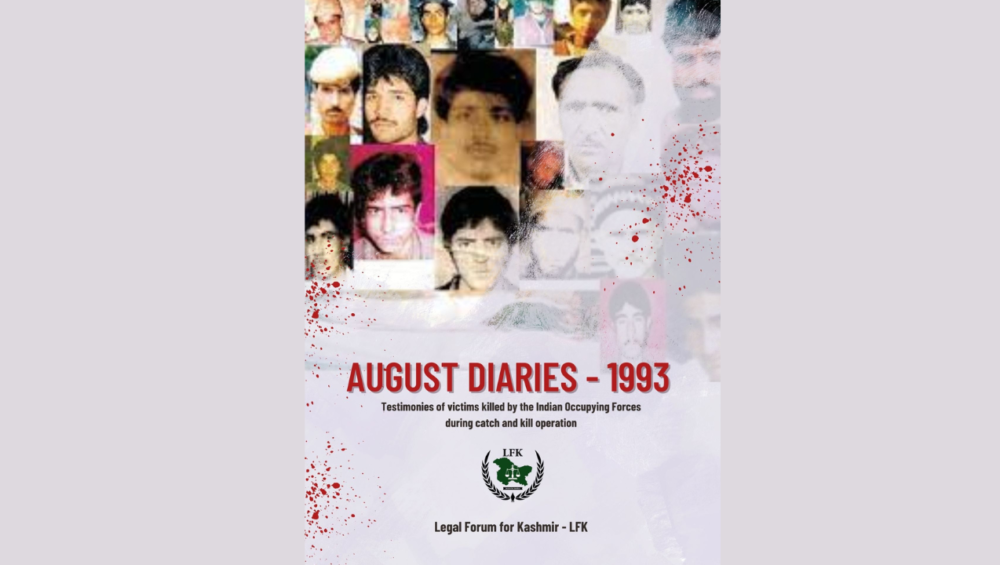 CategoriesReports
CategoriesReportsAugust Diaries – 1993 is the collection of testimonies of the unarmed Kashmiris who were brutally massacred by the Indian occupying forces under the pretext of Catch & Kill Military Operation.